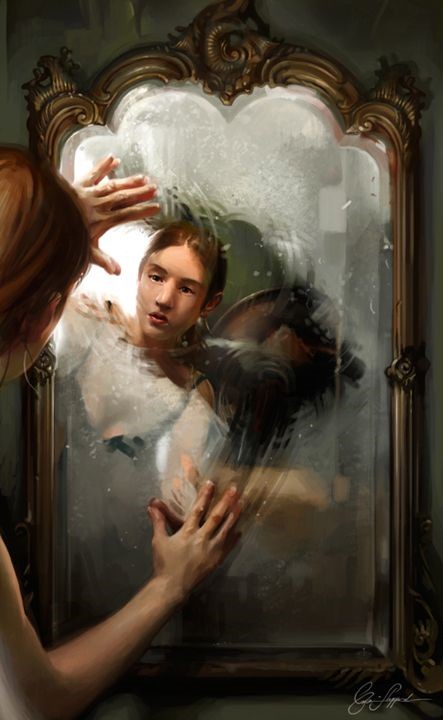Thank you, Robin Pickering, for such a great question! Many philosophers have cracked their heads open trying to answer this one, so I’ll try to do my best here.
A thought experiment will show all the complexities and interesting elements of this problem. Suppose that in the future you can go to work on Mars and travel there through a Star Trek-like teleportation device: your body’s cells are decomposed here on Earth and recomposed up there on Mars, with the same ease as taking a train from London to Manchester. But suppose that one day the teleportation device runs into a problem: instead of transporting you to Mars it just creates a copy of you on Mars – it clones you. You and the clone can even see each other through the video monitors at your respective teleportation stations, and you are both rather baffled. Just then, the director of Earth’s teleportation station approaches you and tells you of another, far worse side effect of the malfunction: the teleportation error has irreversibly damaged your heart, and you have but a few days to live.
For you the question then arises: ‘Will I actually die? If my clone will survive me and if, up to this very moment, we shared our history, experiences, preferences, people we love, and all that distinguishes me as an individual – won’t my identity be preserved?’
There is a sense in which, when you are cloned, your identity will remain intact. This does not mean that you and the clone are the same person; you are two different organisms, occupying different places in space, who can do different things at the same time and even look each other in the eye. But your personal history, your knowledge, the people you hate, love or don’t care about – they are all preserved in your clone. You might not be the same person because you have distinct bodies, but in a sense you share the same mind. Therefore, if all that distinguishes you as a person can be simply retrieved from your memories, thoughts and feelings, then your identity will be preserved in the clone.
However, you also need to keep in mind that the preservation of your mind might not be enough to actually preserve your identity as a person. Your clone, for instance, might decide not to settle for the life you had before your death. If he discovers he is your clone, this discovery alone will make his mind different from yours, the original. This new belief might bring him to desire different things than you did, and prompt him to do different things than you used to do. He might even decide to leave your family, something you would never have even dreamed of doing. Therefore, your identity as a person would be defined not only by the preservation of your mind in the clone’s, but also by what your clone does in the concrete social world where you live(d) – how he behaves with your family and friends and acquaintances. So, paradoxically enough, the degree to which your personal identity would be preserved may end up depending on him and what he decides to do with it.
What do you think? If you get cloned, is your identity still your own? Let us know in the comments.
And, as always, if you have a question for the Armchair Philosophers, don’t hesitate to get in touch. You could send us a message or fill in this form.
If you like what we do, you can support us by buying us a coffee!
Image: In the Mirror, by Cynthia Sheppard (credit)
Join Alex, Carl and James on our podcast as they question Giacomo on his Opinion:
I did my BA in Rome, Università La Sapienza, where I graduated with a thesis about the contemporary debate on personal identity. I am now doing my Research Master’s in Philosophy of Mind at Radboud University, Nijmegen, The Netherlands. I am specifically researching how digital environments (and especially social networking sites) influence our understanding of the world and of others. I like Wittgenstein and theories of extended cognition, which argue that items external to the brain can constitute cognitive processes. I am fascinated by the idea of the cyborg and how the digital revolution is changing our understanding of the world.

